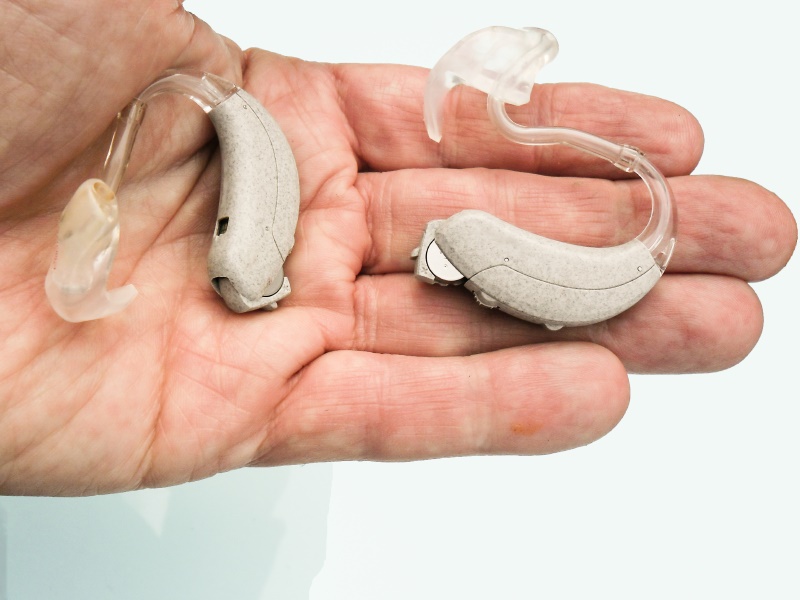
To keep your hearing aids functioning correctly for years to come, you’ll want to learn proper care and maintenance. And although it may feel like an extra burden, with the right plan your hearing aid care will become easy and automatic.
The secret is building effective habits.
If you integrate your hearing aid care into your everyday and nightly routines, pretty soon it won’t seem like any extra work at all.
The following are a few tips for the day-to-day care of your hearing aids (which your hearing specialist will also discuss with you):
Clean your hearing aids daily – Try to include your hearing aid cleansing into your nightly routine, so it becomes as automatic as brushing your teeth. This is critical because daily hearing aid cleansing can prevent the build-up of earwax, dirt, and dust into the different components of the hearing aid, which can result in distorted sound over time.
You’ll want to clean your hearing aid with a soft, dry cloth, while avoiding any kind of liquids that can damage the hearing aid electronics. Talk to your hearing professional for specific guidance on cleaning each type of hearing aid.
You might also prefer to consider buying a hearing aid sanitizer, which uses ultraviolet light to safely and thoroughly kill harmful pathogens. Hearing aid cleaning kits are also obtainable with all of the tools you’ll need to safely and securely clean the device without harming the electronics.
Check the batteries – Hearing aid batteries should be tested and replaced regularly to assure top hearing aid operation. Consider using a battery tester in the morning to assure you have adequate power for the rest of the day, and keep a spare set of batteries on hand.
Before bedtime, when your hearing aids are not being used, shut them off and store them in a cool, dry location with the battery door open.
Store your hearing aids in a secure place – In regard to storage, you’ll want to bear in mind three things:
- Keep the hearing aids away from moisture. In other words, storing your hearing aids in the bathroom is probably a bad idea.
- Avoid subjecting the hearing aids—and hearing aid batteries—to temperature extremes. You’ll want to store your hearing aids in a cool, dry place.
- Avoid storing your hearing aids out in the open, where they can become damaged.
We recommend keeping your hearing aids in a case or drying kit inside the drawer of a bedroom side-table. This will defend the hearing aids from moisture, temperature extremes, and damage from being pushed off the table.
In addition, always take out your hearing aids prior to taking a shower, swimming, or using a hair dryer or hair spray.
Maintain ear hygiene – While earwax has many beneficial characteristics, such as protection and lubrication of the ear canal, it can wreak havoc on hearing aids. As it gets lodged within the hearing aid hardware, sound can become distorted.
Make sure you’re sustaining proper ear hygiene, and if you have too much earwax, think about setting up a consultation with a professional.
Properly insert your hearing aids – While putting in your hearing aids, lean over a table or soft surface in the event that the hearing aids fall. Hearing aids consist of fragile electronics, so a fall on a hard surface can bring about significant damage.
Even with vigilant cleaning and maintenance, after a while the hearing aid will require more complete cleaning or repair.
To ensure that you consistently enjoy the best sound possible, we suggest having your hearing aids professionally cleaned by a hearing specialist at the least twice per year.
Hearing care professionals can render a deep cleaning, a tune-up, and will on occasion replace parts. Staying current on this regular maintenance will extend the life of your hearing aids and will ensure that you achieve the best sound.
